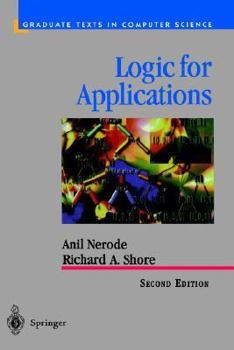Logic for Applications
Select Format
Select Condition 
Book Overview
In writing this book, our goal was to produce a text suitable for a first course in mathematical logic more attuned than the traditional textbooks to the re- cent dramatic growth in the applications oflogic to computer science. Thus, our choice oftopics has been heavily influenced by such applications. Of course, we cover the basic traditional topics: syntax, semantics, soundnes5, completeness and compactness as well as a few more advanced results such as the theorems of Skolem-Lowenheim and Herbrand. Much ofour book, however, deals with other less traditional topics. Resolution theorem proving plays a major role in our treatment of logic especially in its application to Logic Programming and PRO- LOG. We deal extensively with the mathematical foundations ofall three ofthese subjects. In addition, we include two chapters on nonclassical logics - modal and intuitionistic - that are becoming increasingly important in computer sci- ence. We develop the basic material on the syntax and semantics (via Kripke frames) for each of these logics. In both cases, our approach to formal proofs, soundness and completeness uses modifications of the same tableau method in- troduced for classical logic. We indicate how it can easily be adapted to various other special types of modal logics. A number of more advanced topics (includ- ing nonmonotonic logic) are also briefly introduced both in the nonclassical logic chapters and in the material on Logic Programming and PROLOG.
Format:Hardcover
Language:English
ISBN:0387948937
ISBN13:9780387948935
Release Date:January 1997
Publisher:Springer
Length:456 Pages
Weight:2.15 lbs.
Dimensions:1.3" x 6.6" x 9.4"
Customer Reviews
0 rating





